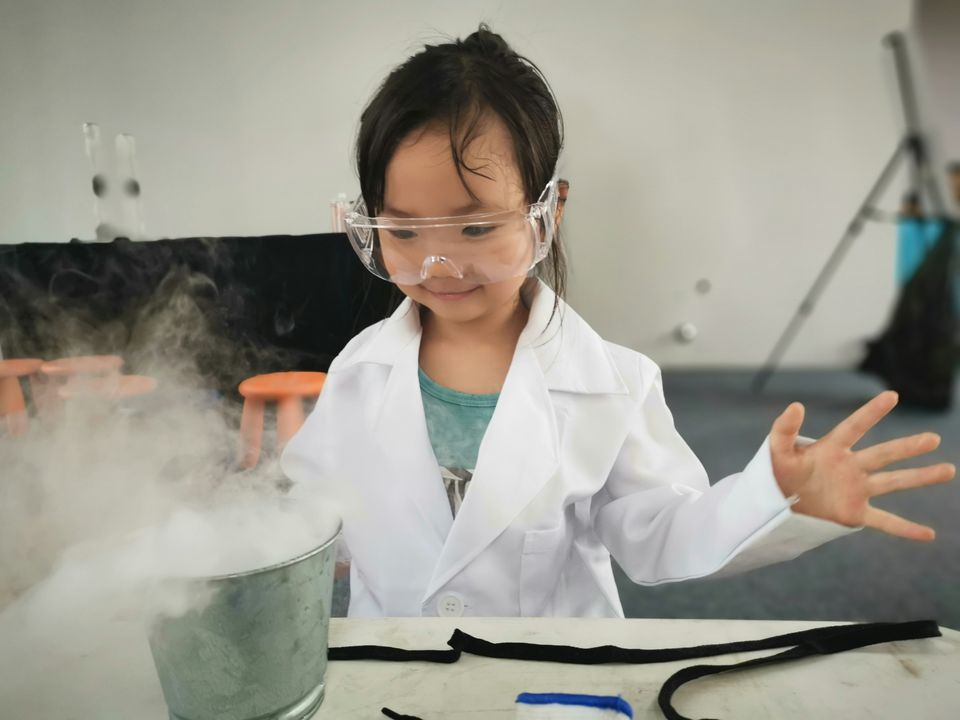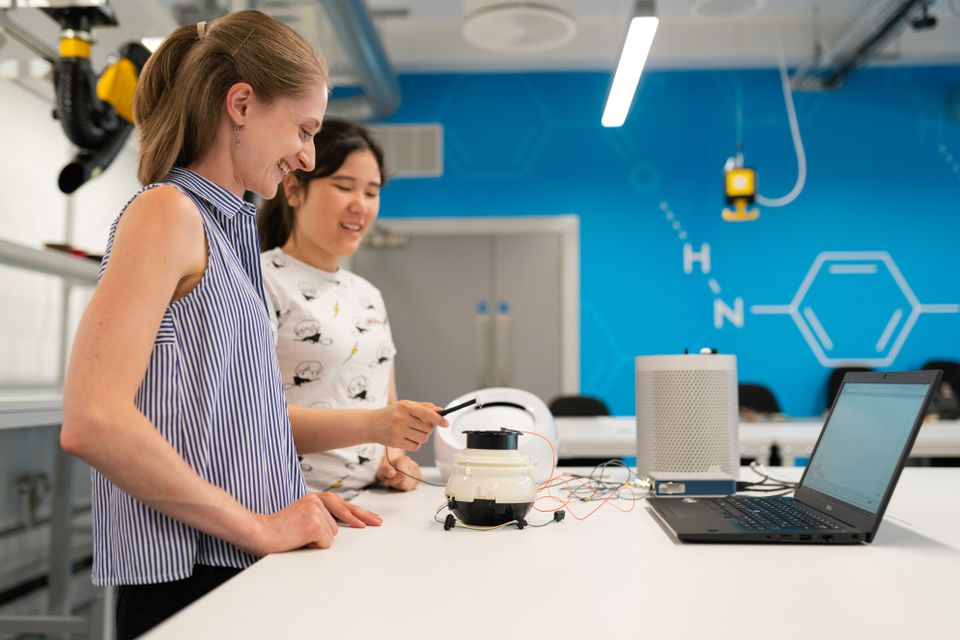Girls' Day 2024: 57 girls dive into space research
On Thursday, April 11, 2024, during Girl's Day, 57 girls from three secondary schools around Leiden and Groningen will dive into Dutch space research at SRON, Kapteyn Institute and NOVA.
Experimenting with light, soldering and working with satellite data
During the visit to SRON, Kapteyn and NOVA, girls from Visser 't Hooft from Leiderdorp and DaVinci in Leiden (total 27) and Gomarus College in Groningen (total 30) get a glimpse into astronomy, earth research and planetary research from female role models. And in the role of women in making telescope and satellite instruments for Dutch, but also worldwide scientific research into space and from space to Earth.
For example, their hostesses designed parts for the James Webb Space Telescope, created the test room for cameras of the future Plato telescope, or built the receivers for the ALMA telescope. Or as researchers they know everything about the birth of our Milky Way, detecting methane or designing sensor systems.
The girls meet female astronomers, earth researchers and computer scientists, as well as engineers who create research facilities. The girls go soldering with them, work with satellite data in Leiden, go to the observatory in Groningen and discover the secrets of light through experiments.
Why is a Girls' Day still necessary?
Girls' Day, held in many more places throughout the Netherlands, is an initiative of VHTO for school girls aged 10 to 15. The aim is to interest girls in science, technology and IT at a young age. Girls' Day increases the chance that girls will also choose science, technology and IT. Girls and women are still underrepresented in tech education and professions. Only 17% of employees in science, technology and IT are women.

A bigger variety of eyes see more
From space research we can say the following about this. If we had always looked at the starry sky only in optical light, we would never have known how different it looked in infrared or X-ray. And we never knew what we learned from that. The more diverse the eyes, the broader the view. That is why we want a diverse pool of researchers and engineers, which also includes girls.
